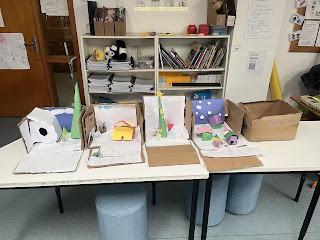Psychology Reflection Journal - Habits of Mind
One psychology class this year, involved learning about the Habits of Mind, which is “having a disposition toward behaving intelligently when confronted with problems, the answers to which are not immediately known." I felt that teaching "Habits of Mind" when possible, would help in creating critical global minded citizens for the future. Below the cut, is a psychology reflection journal concerning this topic.
This reflection journal can be classified as Professional Practice since the needs of individual students in the present day world/society are explored, as well as the feasibility of directly teaching these strategies to students. Sometimes students need to be explicitly led, in order to better develop desirable thinking skills which will aid them in learning and dealing with crises, both their everyday and academic life.
Psychology Response - Habits of Mind
Michelle Hobbs
The Habits of Mind relate to how a student produces knowledge, and acts on information to solve problems. The hand out states that “habit of mind means having a disposition toward behaving intelligently when confronted with problems, the answers to which are not immediately known.” Given the word ‘disposition’, I question how much habits of mind emerge from nature as they do from nurture. Likely, even the most educated of individuals does not have all of these strategies and modes of thinking at their disposal, at any given point in time. I would like to think that all of these habits can be ingrained in an individual, with enough prompting and practice. If these habits were to be taught directly, I feel that a teacher would also need to promote student reflection on their thinking, to guide future choices in which thought pattern should be employed. Ideally, students should have different habits of mind to solve problems. The text states that, “it implies choice making about which pattern should be employed at this time”. I believe that different situations and problems will lend themselves to multiple approaches, sometimes simultaneously. Also, it should be noted that likely there are more than Sixteen Habits of Mind, as critical thinking can result from different approaches yet to be discovered.
As teachers, it is necessary to facilitate critical thinking, in an era where we do not know what kind of future our students will be facing. Some habits of mind might be a little more difficult to teach directly, such as “responding with wonderment and awe”. In the case of this particular habit, the best the teacher can do is try to inspire and excite all students in the journey of learning. “Finding humour” is another skill that is difficult to teach directly, or facilitate if it is not within a child’s nature. The best a teacher could do is make jokes and do their best to put students at ease. However, I feel that, some students will not fare well in learning certain habits of mind, even with persistence. Learning is in part a students’ responsibility, and in addition everyone thinks, learns and processes information differently.
The National Institute of Education in Singapore, published a paper entitled “Infusing Habits of Mind in Lessons”, in which they explore four hypotheses about HoM in four schools. (http://conference.nie.edu.sg/paper/Converted%20Pdf/ab00443.pdf) The study examines teaching by using persisting, thinking flexibility, questioning/posing problems, creating/imagining/innovating and fostering creativity in pupils. They concluded that explicit teaching of theory of mind is necessary to infuse them into lessons. Students could then better use the terminology and understand when they had used various habits of mind. Interactive lessons are also better at developing habits of mind, and habits of mind should not be viewed in isolation.



Comments
Post a Comment